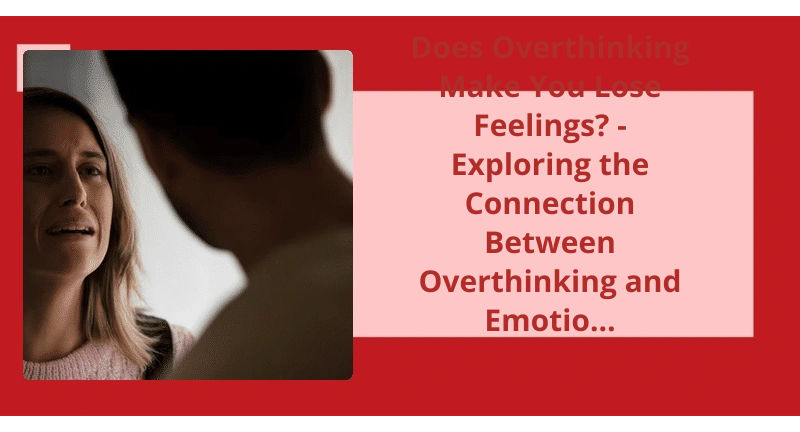It’s an undeniable fact that relationships are complex and intricate, often presenting challenges and obstacles that can test the strength and endurance of both individuals involved. In the realm of emotional hurt and forgiveness, the dynamics can be even more perplexing, especially when it comes to the interplay between men and women. While society often portrays men as resilient and emotionally strong, the truth is that they too can experience pain and anguish when hurt by a woman they love or care deeply about. But can a man truly forgive a woman for hurting him? This comprehensive guide aims to delve into this intricate question, exploring the complexities of forgiveness, examining the factors that influence a man's ability or willingness to forgive, and providing practical tips and insights on how to navigate the path toward healing and reconciliation. Whether you’re a man seeking forgiveness or a woman seeking to repair a damaged relationship, this guide offers a comprehensive roadmap to understanding the intricacies of forgiveness and the potential for healing and growth that lies within.
Is It Harder for Men to Forgive?
Forgiveness is a complex and deeply personal process that can have profound implications for ones emotional well-being. However, recent research suggests that men may face greater difficulty in forgiving than women. This new insight sheds light on the gender differences surrounding forgiveness and offers a deeper understanding of the psychological processes at play.
Furthermore, men may be more prone to bottling up their emotions, unwilling to confront the hurt caused by others. This reluctance to open up and address their feelings can hinder the forgiveness process, as it requires individuals to grapple with their pain and work towards resolution.
It requires introspection, empathy, and a willingness to let go of resentments. By understanding, acknowledging, and addressing the unique hurdles that men encounter, we can better support and encourage forgiveness for everyone, regardless of gender.
Cultural and Societal Influences on Forgiveness for Men
When it comes to forgiveness, cultural and societal influences play a significant role in how men perceive and approach the act of forgiving a woman who’s hurt them. Society often imposes traditional gender roles on men, shaping their expectations of masculinity, strength, and emotional resilience. As a result, men may face societal pressure to suppress their emotions and maintain a tough exterior, making it challenging for them to openly express vulnerability and forgiveness.
Furthermore, cultural norms and beliefs surrounding forgiveness can vary widely. Some cultures may prioritize forgiveness as a virtue, emphasizing the importance of reconciliation and moving forward. In contrast, others may view forgiveness as a sign of weakness or inadequacy, discouraging men from forgiving and seeking resolution.
Additionally, the nature of the offense and the context in which it occurred can also influence a man’s ability to forgive. Deeply personal and traumatic experiences may make forgiveness more difficult, regardless of societal expectations.
It’s essential to recognize that forgiveness is a complex and individual process that can be influenced by a range of cultural and societal factors. Each person’s ability to forgive may differ significantly, and it’s crucial to approach forgiveness with empathy, understanding, and respect for the unique experiences and perspectives of others.
When a loved one hurts you, the decision to forgive them can be a challenging one. It may mean accepting that your relationship will never be the same, and in some cases, it may even require keeping a distance from them. However, forgiving someone allows for the possibility of repairing the damaged bond and moving forward. While everyone makes mistakes, whether forgiveness is possible ultimately depends on the specific circumstances surrounding the situation.
Is It Possible to Forgive Someone That You Love?
Is it possible to forgive someone that you love? This question is one that many people grapple with in their relationships. The truth is, forgiveness is a complex and deeply personal journey that varies from person to person. However, it’s important to remember that forgiveness doesn’t mean condoning or accepting the hurtful actions of another person. Instead, it’s a choice to let go of anger and resentment, freeing yourself from the emotional burden of holding onto grudges.
Depending on the circumstances, you may even need to avoid contact with the person who hurt you. This can be especially true if their actions were abusive or if they show no remorse or desire for change. In such cases, forgiving them doesn’t mean allowing them back into your life or exposing yourself to further harm. It means understanding that their actions are a reflection of their own struggles and limitations, and choosing to prioritize your own well-being and safety.
However, it’s important to remember that everyone makes mistakes. When a loved one hurts you, it’s natural to feel betrayed, angry, and hurt. But holding onto these negative emotions can hold you back from healing and finding peace. Forgiving someone doesn’t mean forgetting what they did or pretending it never happened. It means acknowledging the pain and deciding to move forward, either with or without them in your life.
It may not be an easy or quick process, and it may require therapy or support from loved ones to help you navigate through it. It’s about reclaiming your power and choosing to let go of the past, allowing yourself to embrace the present and future with a sense of peace and freedom.
The Impact of Forgiveness on Mental and Emotional Well-Being: How Does Forgiveness Benefit the Forgiver? What Are the Potential Long-Term Effects of Holding Onto Grudges and Resentment?
- The ability to forgive can have a positive impact on mental and emotional well-being
- Forgiveness allows individuals to let go of negative emotions and move forward
- Forgiving others promotes inner peace and reduces stress levels
- It fosters healthier relationships and improves overall life satisfaction
- Forgiveness can enhance self-esteem and self-worth
- By forgiving, individuals can break free from the cycle of resentment and grudges
- Holding onto grudges and resentment can lead to chronic anger and increased feelings of negativity
- It can negatively affect mental health, contributing to anxiety and depression
- Unforgiveness can result in decreased satisfaction with life and overall well-being
- The long-term effects of holding onto grudges include strained relationships and isolation
- It can lead to a constant state of bitterness and hinder personal growth
- Forgiveness offers the opportunity for personal healing and growth
- Letting go of grudges and resentment allows individuals to focus on self-care and self-improvement
- Forgiveness enables individuals to reclaim their power and regain control over their emotions
- The act of forgiveness can lead to increased empathy and compassion towards others
Source: Can you love someone but not be able to forgive them?..
However, holding onto anger and the inability to forgive can have detrimental effects on a relationship, leading to resentment, communication breakdowns, and a lack of emotional intimacy. It’s important to explore the reasons behind the inability to forgive and seek professional help if necessary, in order to navigate through the challenges and find a healthier path forward.
What Happens When You Can’t Forgive Your Partner?
It’s natural to want to protect yourself from being hurt again. However, holding onto grudges and refusing to forgive can be detrimental to both your mental well-being and the health of your relationship. When you can’t forgive your partner, resentment and bitterness can fester, creating a toxic environment that hinders growth and intimacy.
Forgiveness isn’t an easy task, especially when the hurt runs deep. It requires vulnerability and a willingness to let go of the pain. However, it’s important to remember that forgiveness doesn’t mean condoning or forgetting the actions that caused the hurt. It’s a process of releasing the negative emotions and finding a way to move forward without carrying the burden of anger and resentment.
If you find it challenging to forgive your partner, it’s crucial to communicate your feelings openly and honestly. Expressing your pain and discussing the impact of their actions can create a space for understanding and healing. It’s important for your partner to recognize the pain they’ve caused and to take responsibility for their actions.
In some cases, seeking professional help, such as couples therapy or individual counseling, can be beneficial. A therapist can facilitate productive conversations, help you navigate through complex emotions, and provide guidance on forgiveness and healing. They can also assist in identifying underlying issues that may be contributing to the inability to forgive.
Ultimately, whether forgiveness is possible depends on the individuals involved and the circumstances surrounding the hurt. It requires a genuine willingness to repair and rebuild the trust that’s been broken. While forgiving may not always result in staying together, it can bring closure, peace, and personal growth. It’s important to remember that forgiveness is a personal journey, and it may take time to find the strength to forgive and move forward.
The Effects of Holding Onto Grudges and Refusing to Forgive
Holding onto grudges and refusing to forgive can have detrimental effects on both parties involved. When a man is hurt by a woman, it’s important to consider the consequences of holding onto this pain and resentment.
By refusing to forgive, the man may find himself trapped in a cycle of bitterness and anger, which can negatively impact his emotional well-being. Holding onto grudges can also affect his ability to trust and form meaningful relationships in the future.
On the other hand, forgiveness can be a powerful tool for healing and growth. It allows both individuals to release negative emotions and move forward. Forgiving a woman for hurting him gives the man an opportunity to learn from the experience, gain personal strength, and potentially rebuild the relationship with her or create healthier connections in the future.
While forgiveness may not always be easy, it’s a crucial step towards emotional healing and reconciliation. It’s important for both men and women to recognize the importance of forgiving and letting go of grudges in order to achieve inner peace and maintain healthy relationships.
It’s important to be open and honest with your partner when asking for forgiveness. By expressing genuine remorse and taking responsibility for your actions, you create an environment of understanding and empathy. Understanding their perspective and how your actions affected them is crucial in showing that you truly care about their feelings.
How Do You Let Your Man Forgive You?
When asking for forgiveness, it’s important to sincerely express remorse and regret for your actions. Your man needs to see and feel that you genuinely acknowledge the hurt youve caused and that you’re truly sorry for it. This requires you to reflect on your behavior and understand why it’s hurt him so deeply. By taking the time to truly empathize with his feelings, you can demonstrate that you care about his emotional well-being.
Honesty is paramount in seeking forgiveness. It’s crucial to be open and transparent about what happened and why you did what you did. Hiding or downplaying the truth will only hinder the process of forgiveness. By being honest, even if it means facing difficult conversations or admitting your mistakes, you show a willingness to take responsibility for your actions.
Furthermore, actions speak louder than words. While it’s important to verbalize your remorse, it’s equally vital to back up your words with actions. Show through your behavior that you’re committed to changing and improving. This could involve actively listening to your man, making genuine efforts to communicate better, and respecting his boundaries.
It takes time for wounds to heal, and your man may need space and time to process his emotions. Respect his need for space and allow him the time to come to terms with what’s happened. During this period, avoid pressuring him or constantly seeking reassurance. Let him open up in his own time, and be supportive and understanding throughout the process.
Lastly, forgiveness can be a two-way street. Acknowledge that everyone makes mistakes, and that personal growth and learning from these experiences are part of the journey. By forgiving yourself, you can genuinely move forward and become a better partner.
By demonstrating these qualities, you can create an environment conducive to healing and growth within your relationship.
The Importance of Communication in Seeking Forgiveness
Communication plays a vital role in seeking forgiveness, regardless of gender. It allows individuals to express their emotions, apologize sincerely, and understand the impact of their actions on the other person. Effective communication helps build empathy and fosters understanding, as it gives both parties a chance to express themselves openly and honestly. It enables a man to forgive a woman who’s hurt him by creating a space for dialogue, where they can address the pain caused, seek resolution, and work towards rebuilding trust. Overall, communication is essential in seeking forgiveness as it promotes healing, growth, and reconciliation in relationships.
Conclusion
These include open communication, genuine remorse, empathy, and the willingness to heal and grow together. It’s important to recognize that forgiveness doesn’t always equate to forgetting or condoning the hurtful actions. Rather, it’s a choice to release the burden of anger and resentment, and find a path towards healing and reconciliation.






